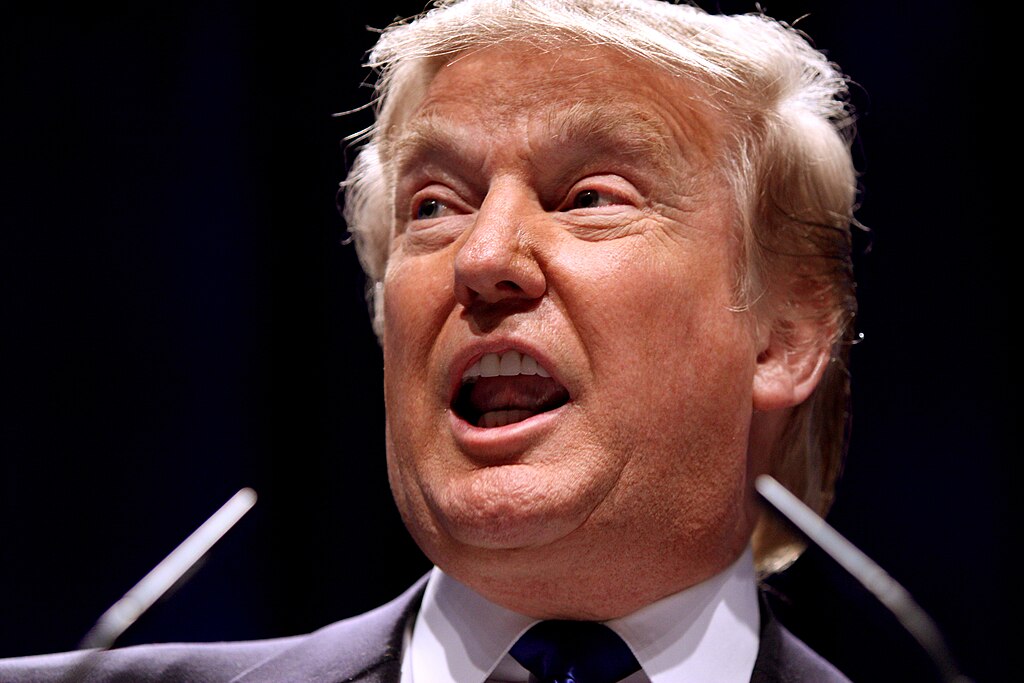Donald Trump, the United States' 47th president-elect, has unveiled a sweeping foreign policy agenda for his upcoming term, sparking both anticipation and apprehension. His priorities aim to redefine America’s role on the global stage, focusing on restoring traditional alliances, recalibrating trade partnerships, and doubling down on controversial policies from his first administration.
Strengthening U.S. Alliances, But on New Terms
Trump's foreign policy team has emphasized the importance of rekindling ties with traditional allies while ensuring that these partnerships align with America’s national interests. NATO, a subject of significant debate during his first presidency, is set to undergo another round of scrutiny. Trump is expected to continue his push for greater financial contributions from member nations, arguing that the U.S. has carried a disproportionate share of the alliance’s defense budget.
At the same time, his administration plans to solidify relationships with nations in the Indo-Pacific, particularly India and Japan, to counterbalance China’s growing influence in the region.
Trade Wars and Economic Realignment
One of Trump’s hallmark policies—using tariffs to reshape global trade dynamics—is poised for a comeback. The president-elect has hinted at imposing additional tariffs on goods from China, citing ongoing concerns about intellectual property theft and trade imbalances. While his team touts this as a step toward strengthening domestic industries, critics warn it could ignite another round of economic uncertainty.
Additionally, Trump is expected to renegotiate trade deals with Mexico and Canada, signaling potential revisions to the USMCA. His goal, insiders say, is to secure terms even more favorable to American workers and industries, a move likely to face resistance from neighboring nations.
The China Factor
Trump’s stance on China remains uncompromising. His administration plans to expand restrictions on Chinese investments in U.S. technology and tighten export controls on sensitive products. National security concerns will drive these decisions, particularly as competition in artificial intelligence and semiconductors intensifies. Analysts predict heightened tensions between Washington and Beijing as both nations vie for global technological supremacy.
Immigration and Border Security: An International Issue
While immigration has been a cornerstone of Trump’s domestic policy, its foreign policy implications are equally significant. The president-elect’s team is exploring deals with Central and South American nations to curb migration flows to the U.S.-Mexico border. Some proposals involve offering aid packages to incentivize these countries to tighten their own border controls, a move that critics label as outsourcing the U.S.’s immigration responsibilities.
Middle East Strategy: Revisiting the Abraham Accords
Trump has expressed a desire to expand the Abraham Accords, the hallmark peace agreements between Israel and several Arab nations brokered during his first term. His administration is reportedly in talks to add more nations to the accords, with hopes of fostering regional stability and creating new economic opportunities.
Controversy and Criticism
Trump’s ambitious foreign policy goals have drawn sharp criticism. Opponents argue that his tariff-heavy economic strategy could backfire, alienating allies and destabilizing global markets. Others question his ability to manage escalating tensions with China without triggering a larger geopolitical conflict. Regardless, Trump’s unapologetically bold approach signals that his administration is prepared to shake up the international order yet again.



 Germany and China Reaffirm Open Trade and Strategic Partnership in Landmark Beijing Visit
Germany and China Reaffirm Open Trade and Strategic Partnership in Landmark Beijing Visit  Iran Supreme Leader Ayatollah Ali Khamenei Killed in Israeli, U.S. Strikes: Reuters
Iran Supreme Leader Ayatollah Ali Khamenei Killed in Israeli, U.S. Strikes: Reuters  Trump Administration Sues Harvard Over Alleged Race-Based Admissions Practices
Trump Administration Sues Harvard Over Alleged Race-Based Admissions Practices  JPMorgan Closes Trump Accounts as $5 Billion Lawsuit Moves to New York
JPMorgan Closes Trump Accounts as $5 Billion Lawsuit Moves to New York  Panama Investigates CK Hutchison’s Port Unit After Court Voids Canal Contracts
Panama Investigates CK Hutchison’s Port Unit After Court Voids Canal Contracts  Suspected Drone Strike Hits RAF Akrotiri Base in Cyprus, Causing Limited Damage
Suspected Drone Strike Hits RAF Akrotiri Base in Cyprus, Causing Limited Damage  Trump Floats “Friendly Takeover” of Cuba as Rubio Reportedly Engages in Talks
Trump Floats “Friendly Takeover” of Cuba as Rubio Reportedly Engages in Talks  FedEx Faces Class Action Lawsuit Over Tariff Refunds After Supreme Court Ruling
FedEx Faces Class Action Lawsuit Over Tariff Refunds After Supreme Court Ruling  Federal Judge Blocks Virginia Social Media Age Verification Law Over First Amendment Concerns
Federal Judge Blocks Virginia Social Media Age Verification Law Over First Amendment Concerns  Meta Encryption Plan Sparks Child Safety Concerns Amid New Mexico Lawsuit
Meta Encryption Plan Sparks Child Safety Concerns Amid New Mexico Lawsuit  Trump Says U.S. Combat Operations in Iran Will Continue Until Objectives Are Met
Trump Says U.S. Combat Operations in Iran Will Continue Until Objectives Are Met  More U.S. Investors Join Arbitration Against South Korea Over Coupang Dispute
More U.S. Investors Join Arbitration Against South Korea Over Coupang Dispute  Pakistan-Afghanistan Tensions Escalate as Taliban Offer Talks After Airstrikes
Pakistan-Afghanistan Tensions Escalate as Taliban Offer Talks After Airstrikes  U.S. Blocks Venezuela From Funding Nicolas Maduro’s Legal Defense in New York Drug Trafficking Case
U.S. Blocks Venezuela From Funding Nicolas Maduro’s Legal Defense in New York Drug Trafficking Case  Peter Mandelson Arrested in London Amid Jeffrey Epstein Ties Investigation
Peter Mandelson Arrested in London Amid Jeffrey Epstein Ties Investigation  U.S.-Israel Strike on Iran Escalates Middle East Conflict, Trump Claims Khamenei Killed
U.S.-Israel Strike on Iran Escalates Middle East Conflict, Trump Claims Khamenei Killed 
































